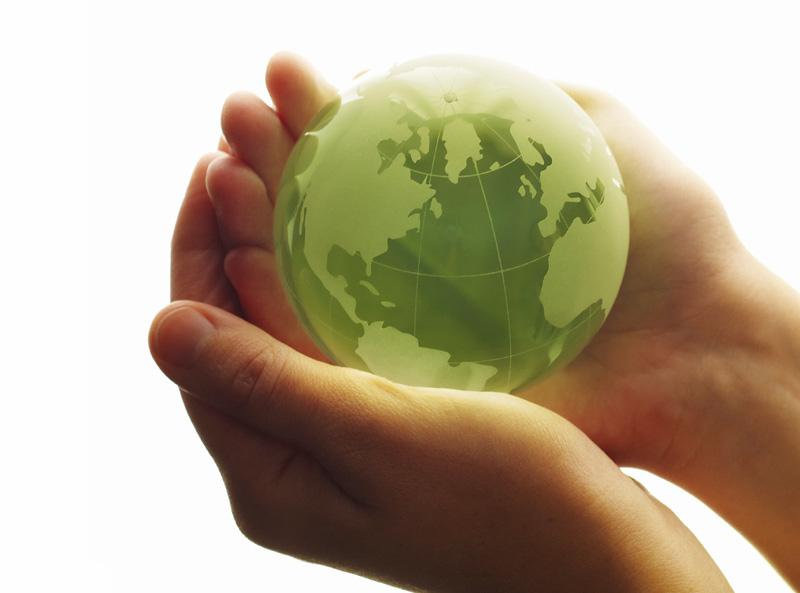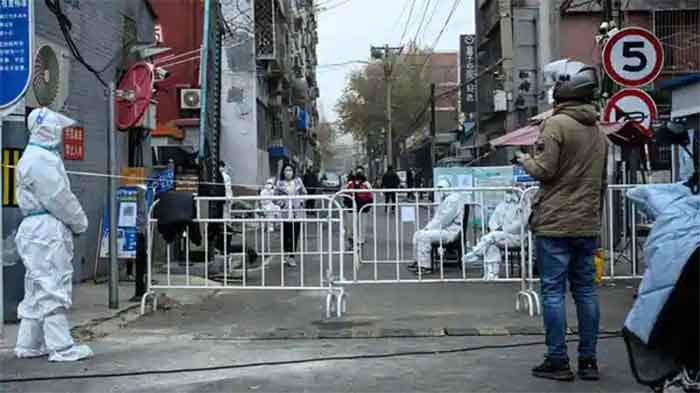
Misfortunes never come singly, do they? The pandemic which has turned us into emotional cripples illustrates our culpable sin of negligence of duties and obligations to the environment. Like old age, it has diminished our power to live our life as we used to see fit. To speak of the growing sense of pessimism that has taken hold of us is to be reminded that it is better to prevent than to cure; better to anticipate than to recover. To do so, we must reduce speed. The new paragon of virtue is: slow is beautiful. It is vital that we be at the rendez-vous this time around unless we want to be cast in the depths of another despair from which we may not recover.
The pandemic we have been living through since January 2020 has left us not only numb and perplexed but paralyzed as well. It has also filled us with fear. The daily rising number of victims is a telling sign of its rotating violence. There is no getting away from it. We are in the path of the tornado. It is an understatement to say that we have learned a lesson the hard way. The human cost is considerable; tragic for many of us who lost a beloved one. Yet, the paradox remains: SARS-Cov 2 has forced us once more to look at ourselves in the mirror. And the result is not encouraging.
The virus has issued a writ, enjoining a specific action on our part. Henceforth, we must re-examine, and indeed, think afresh our ways of seeing the planet before we enter yet another mad cycle of reckless spree. We buy more and more of everything we see; knowing fully well that our natural resources are in short supply. On the flipside, we throw away vast quantities of food that can sustain millions of poor people who live on less than a dollar a day. Azad Bhartiya, in My Seditious Heart by Arundhati Roy, put it succinctly:
I am against the Capitalist Empire, plus against US Capitalism, Indian and American State Terrorism / All Kinds of Nuclear Weapons and Crime, plus against the Bad Education System / Corruption / Violence / Environmental Degradation and All Other Evils. Also I am against Unemployment. I am also fasting for the complete obliteration of the entire Bourgeois class.
That last phrase channels the absurdity of it all—the world we live in and are supposed to share together is in a spiral.
The high tech companies (Google, Facebook, Tesla, Amazon, Microsoft), multinational institutions like the World Bank and the IMF, corporate greed and marked-driven democracy, globalization and souped-up capitalism, as well as all the assorted evils we know nothing about, are flexing their muscles to gut what we used to call “home.” For them, home is no longer a private space, a refuge of sorts, where we put up our feet and enjoy our intimacy. It is being converted to a public arena where we teach our children, practice our sports, and work from a distance while we are kept under surveillance. If this sounds bizarre, it is because we have invested in a Screen New Deal (technology) instead of a Green New Deal (Humans). On this note, it is no surprise that the privileged prefer the SND whereas the rest of us would rather opt for the GND as a way of life. And if the haves will soon have everything delivered to their doorsteps via cloud technology and driverless drones, the have-nots prefer a simple life, rooted in Mother Earth. The irony is that the wealthy think that their way of life runs on artificial intelligence. This is how Anuja Sonalker, CEO of Steer Tech, presented the argument: “There has been a distinct warming to humanless, contactless technology. Humans are biohazards, machines are not.” Only a perverse mind can think in this manner. Snolker forgets that everything is in fact made possible by an army of workers in meat- processing plants, sweatshops, data centers, lithium mines, industrial farms—what John Lennon aptly called “working-class heroes.” With people like Snolker & Co. at the helm, we are bound to be exploited, eyed up, and punished when need be. From now on, every move we make as well as every breath we take, to borrow a phrase from Police, will be traceable.
The time has therefore come to render an account of the dire situation we are in. We must invent a new model of society; a society similar to the one projected by Arundhati Roy, Greta Thunberg, Aaron William Perry, to name but a few; one that is more human and humane; one that brings us together instead of dividing us; one that cares deeply about the environment. Roy and Co., stress our “dependence upon soil for health and well-being. Soil is essential for climate stabilization,” Perry writes, “for healthy, nutrient-dense food, for ecosystem vitality, and even for our immune system, cognitive, and endocrine system performance.” Not only Perry but also Roy and Thunberg fight for soil regeneration, climate action, and sustainability. For them and for the rest of us, a model based on values of solidarity, equal sharing of wealth, and social justice, is what we must stand up for. It is in this sense that the pandemic may help us to detoxify our standard of living because if we are not careful here and now, the lust for wealth, the fierce competition on the global market, the urgent need to regain growth, whether it be lasting or not, will once again become the object of our desire.
The felicitous upshot is that if we do not stop casting covetous looks at all of the above, we run the risk of going back to the time before we gave hospitality to the virus.
In the interim, how can we keep the accounts of this painful period? As we are bearing the brunt of the pandemic in solitude; who can be held to account for the predicament we are in and how can we avoid being blinded, once more, by our own insight? Think of our dependence on China for the global supply chain of vital drugs alone and the point will be clear enough. These questions remain unanswered, at least for now. One thing is certain, though. If the virus woke us up from our slumberous torpor, the lockdown has presented us with acumen into what has been happening all along—namely, the mise à sac of the entire planet. Today, we need an awareness program that puts the question of the environment on top of the world agenda.
As recently as last year, we all thought we were living in perfect harmony with the world where the transmission of nearly everything, as if it were a transient meteor, ran at the speed of light. We even thought of it as a thing of beauty that brought us joy and happiness. The dispatch also gave us the false impression that we owned everything. Such entitlement enabled us to hop on jumbo jets that filled the air we breathe with kerosene. As a result, Mother Earth became a sieve of sorts. Let there be a lesson to us in how we must not fall over the next precipice. We have to avoid jumping with bare feet and closed eyes in a crazy farandole. If anything, the pandemic made us fully aware that our redemption lies in caring about the local, epitomized in the grocery shop located at the corner of the street where we live and not in the mega-mall where the pre-modern and postmodern co-exist side by side without knowing where they came from. Our self-isolation has also opened our eyes to the many ugly speeds we have surrounded ourselves with, which we must control unless we want to be hemmed in in a collective hypnosis.
It is high time that we slow down and take the time to think a little. Only then, will we be able to bear the stamp of common sense.
Mustapha Marrouchi is a writer on a wide range of topics including literature, politics, cultural criticism, and Islamic issues. He is the author of half a dozen books, includingEdward Said at the Limits. He is finishing a novel tentatively titledIn Praise of Three Spotted Hyenasand an essay onMobbing in Academia.
SIGN UP FOR COUNTERCURRENTS DAILY NEWS LETTER
















































